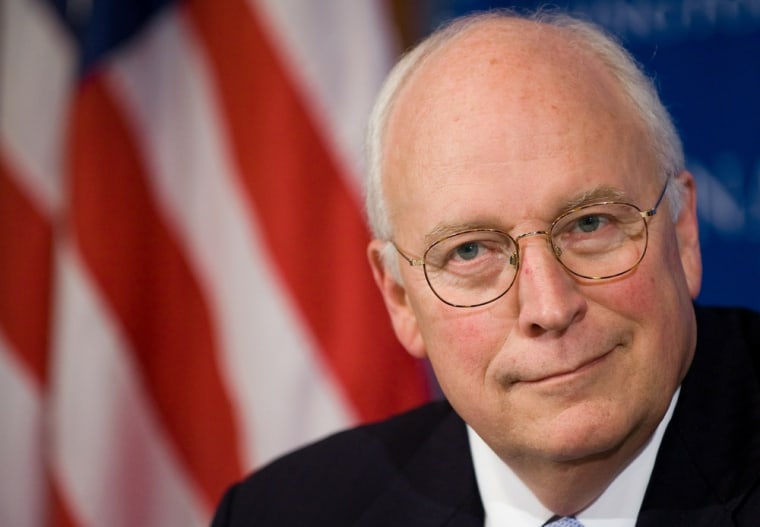Former Vice President Dick Cheney addressed his health and offered another defense of Bush administration of "necessary" but "controversial" anti-terrorism policies Saturday in his first long speech since he suffered what was described as "increasing congestive heart failure" last summer.
Cheney appeared frail but spoke clearly at the Bakersfield Business Conference, where he was "interviewed" by his wife, Lynne.
"She's been my nurse, my negotiator with the medical community, and in return for all of that great help she's given me, today I've agreed to let her interview me," Cheney told a sold-out crowd of about 10,000. Full-day tickets for the conference were $495 each.
Cheney, who had his fifth heart attack in February, underwent a procedure to implant an LVAD (left ventricular assist device) in his heart in July. The procedure usually is used as a bridge therapy to a transplant. In some patients who are not good candidates for a transplant, the device can be a stop-gap "permanent" solution.
Cheney explained why he believes the Bush administration's national security, surveillance and "enhanced interrogation" policies prevented more terrorist attacks after Sept. 11, 2001.
"I'll always remember lifting off in the helicopter (on 9/11) and looking down on the Pentagon, seeing the devastation that had been wrought — that plus the World Trade Center in New York — the devastation that had been wrought by 19 men armed with box cutters and airline tickets. From that moment on, we were in a situation where we could no longer treat terrorist attacks as a simple law enforcement problem. They were an act of war."
Cheney said intercepting calls from overseas and enhanced interrogations of captured al-Qaida helped officials find out what they knew.
"All of this turned out to be very controversial ... but it was absolutely necessary. And one of the things I'm proudest of as vice president from my time working with President George Bush, is that we prohibited, blocked, in effect defeated all further attempts for seven-and-a-half years to launch major attacks against the United States."
More threats lie ahead, Cheney warned.
"Now I think the biggest threat of all is the possibility that we'll end up with terrorists, at some point, in the heart of one of our communities, one of our big cities, armed with a nuclear weapon."
"When you're dealing with somebody who wants to die for Allah and their promise is that if they do they'll go straight to paradise, then the possibility of a nuclear weapon isn't a deterrent, it's an incentive. And it's my belief if they ever do get their hands on that kind of capability, that they'll use it."
Cheney also talked about his campaigns in Wyoming while he was a member of Congress, a book he is writing due out in 2011, and working for four Republican presidents.
Lynne Cheney asked, "So who's your favorite?"
Dick Cheney answered: "I got to work for all those presidents because I never said who was my favorite."
